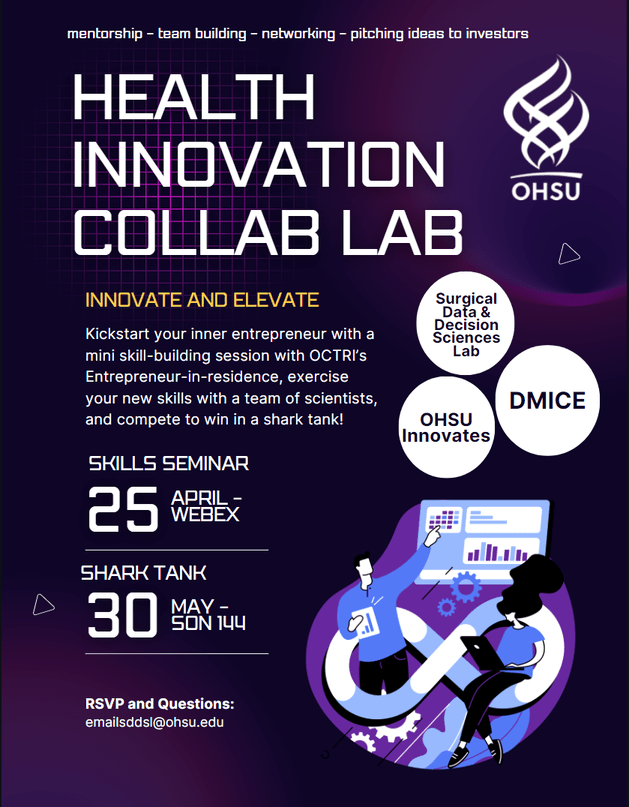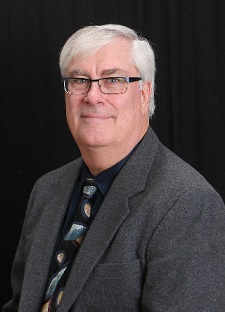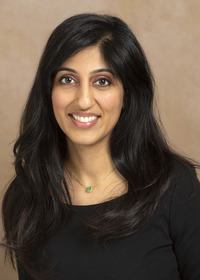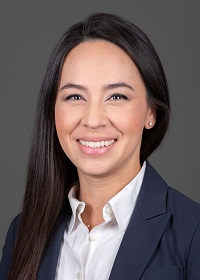Surgical Data & Decision Sciences Lab
We are advancing the interdisciplinary field of surgical decision sciences through rigorous analytics, decision-making models, and clinical expertise to optimize surgical outcomes and learning. We are creating data-driven approaches and evidence-based strategies to inform surgeon choices, enhance patient safety, accelerate learning, and improve the efficiency and effectiveness of surgical interventions.
Pioneering Precision: The Vital Fusion of Surgical Decision and Data Sciences
We are in an era of transformation in healthcare – one that brings the practice of surgery with the precision of surgical decision sciences and the power of data analytics. This convergence is reshaping the landscape of surgery and the OHSU Surgical Data and Decision Sciences lab is leading the transformation.
Our surgical world includes not only the human body with its intricate complexity but the information available to us to empower data-driven decision making tailored to each patient. Surgical decision and data sciences, an amalgamation of clinical expertise and data analytics, creates guidance to navigate through uncertainties, directing surgeons and patients to more deeply informed choices.
In the dynamic realm of surgery, every decision carries weight – a fact that underscores the transformative potential of data sciences. By sifting through vast datasets, we can identify correlations, refine techniques, and push the boundaries of surgical innovation. These insights become the new cornerstone of evidence-based practice.
The impact of surgical decision and data sciences also resonates in the realm of medical education, where aspiring surgeons immerse themselves in realistic simulations and AI driven learning both in and out of the operating room - all informed by data. This experiential learning hones skills, nurtures adaptability, and prepares the next generation of surgeons to excel in a world where surgical decisions are guided by learned skill and the wisdom of data.
Yet, as with any revolutionary advancement, challenges emerge on the horizon. Ethical considerations, patient privacy, and the balance between human judgment and algorithmic guidance demand careful thought. Transparent practices, ethical frameworks, and ongoing discourse ensure that the integration of data sciences into surgical decision-making remains steadfastly anchored in responsible and compassionate care. This conversation is best guided by surgeons trained in data and decision sciences.
In each calculated incision, in every data-driven decision, we are driving a new era in surgery – an era where tradition meets innovation, and where science meets the artistry of healing. With surgical decision and data sciences, we are at the leading edge of transformation, reshaping the future of healthcare, one patient at a time.

Health Innovation Collab Lab
DMICE, OHSU Innovates and Dept of Surgery Surgical Data & Decision Sciences Lab are organizing a three-part Health Innovation Collab Lab where participants will gain valuable insights into real-world translational problems and acquire practical skills in ideation, pitch development, science communication, collaboration and networking. This is a unique opportunity to expand your skillset to identify and solve translational problems and develop a compelling pitch to diverse audiences for translational impact (business ventures, grant proposals). Participants will be uniquely positioned to drive meaningful impact in AI, health equity, and learning health systems.
Part 1: April 4, 2024
Introduction to Translational Problems
- Problem identification activity
- Emphasis placed on identifying gaps in healthcare delivery, disparities in access, and opportunities for improvement
Due April 8: submit completed problem statement worksheet for team assignments
Part 2: April 25, 2024
Crafting a Compelling Pitch
- Mentoring by OHSU Entrepreneurs-in-Residence
- Guidance on communicating the problem-solution fit, highlighting the real-world impact of your proposed innovation
Part 3: May 30, 2024
Shark Tank Pitch
- Each team will present their innovation pitch to the larger group, simulating a real-world pitch scenario
- Experts in surgery, bioinformatics, and innovation will offer insights and guidance to further enhance the quality and viability of the proposed solutions, as well as offer next steps
RSVP and questions: emailsddsl@ohsu.edu
More about OHSU Innovate’s Entrepreneur-in-Residence:

Richard Rylander
Entrepreneur-in-Residence, OHSU
President, BPStrat
Richard has more than 40 years’ experience in pharmaceutical and biotech, covering a wide range of areas including sales, management, marketing, training, operations, market research, and IT. His ground-breaking work creating the specialty distributions systems for Tracleer® and Zavesca® became the basis for the FDA's Risk Evaluation and Mitigation Strategies program. He is also an inventor and patent holder. His device development work in diabetes combined several technologies for a unique product.
Having launched several Orphan drugs, Rylander is well versed in identifying unique market niches as well as dealing with managed care, pricing, reimbursement, Medicare and Medicaid. He has also created call center support systems, including a unique software system for managing high-risk patients. Rylander has been involved in multiple startups and has consulted for companies evaluating new products. He has extensive experience in contract negotiation and management, performance review systems, and incentive planning.

Rob Arnold
Entrepreneur-in-Residence, OHSU
Executive Director, Health Commons Project
Rob is the executive director of Health Commons Project, a public health service accelerator company developed by the Washington State Department of Health in consultation with the Bill and Melinda Gates Foundation. Health Commons provides technical assistance to Washington state schools and local health jurisdictions to ensure all Washington residents get equitable access to COVID care services.
In addition to Health Commons, Rob is an entrepreneur in residence at OHSU and digital health advisor to UW and Fred Hutch. Previously, Rob was a strategic advisor to Clario Medical (sold to Intelerad), CEO of Geospiza (sold to Perkin Elmer), CEO of Crossport Systems (sold to Metroworks/Motorola) and ST Labs (sold to Lionbridge).
Sewell M, Kilbourne M, Schipper P, Thanawala R. Extending the reach of thoracic oncology with telehealth: Phone-based telemedicine assessments in thoracic oncology are safe and effective. Poster session presented at: Society of Thoracic Surgery Annual Meeting; 2024 Jan 27-29; San Antonio, TX.
Sewell M, Mohammadi M, Schipper P, Rydzak C, Landreth S, Thanawala R. Minimally invasive lobar preservation in the setting of spontaneous middle-lobe torsion. JTCVS Tech. 2023 Nov;23:154-157.
Sewell M, Sukumar M, Thanawala R. Left-Sided Approach to Esophageal Mobilization for Minimally Invasive Esophagectomy in a Patient With a Right-Sided Descending Aorta. CTSNet [Internet]. Portland, Oregon: Oregon Health & Science University. 2023 Feb. Available from https://www.ctsnet.org/node/54731
- Learning decision and data science
- Natural language processing as a tool to understand scope of knowledge about operations in surgical education
- Ontological framework to measure relatedness of operations
- Mapping assessment and perception derived learning curves in surgery
- Measuring user experience and usability metrics driving surgical skill assessment
- Machine learning driving entrustability modeling
- Clinical decision and data science
- Assessing feasibility of phone-based only telehealth visits to increase accessibility of thoracic oncology care
Venkatraman V, Ponder M, Gellad Z, Lad S, Christy E, Plichta R, Harrison JK, Hughes GC, Doberne JW. Feasibility study of a novel digital health platform for patients undergoing transcatheter aortic valve replacement (TAVR). J Card Surg 2022;37:2017-22.
Doberne J, Redd T, Lattin D, Yackel TR, Eriksson CO, Mohan V, Gold JA, Ash JS, Chiang MF. Perspectives and uses of the electronic health record among US pediatricians: A national survey. Journal of Ambulatory Care Management, 31 Dec 2016, 40(1):59-68.
Doberne JW, He Z, Mohan V, Gold JA, Marquard J, Chiang MF. Using high-fidelity simulation and eye tracking to characterize EHR workflow patterns among hospital physicians. AMIA Annual Symposium Proceedings. 2015 Nov; 2053.
Doberne JW, Kakaday R, Redd T, Lattin D, Yackel TR, Eriksson CO, Mohan V, Gold JA, Ash JS, Chiang MF. Barriers to Information Access in Electronic Health Records during Initial Patient Visits: A Qualitative Study. Proceedings of the HFES 2015 International Symposium on Human Factors and Ergonomics in Health Care: Improving the Outcomes. 2015;4(1)143-9.
Digital Health for Patients Undergoing Cardiac Surgery: A Systematic Review. Wu KA, Kunte S, Rajkumar S, Venkatraman V, Kim G, Kaplan S, Anwar-Hashmi SO, Doberne J, Nguyen TC, Lad SP. Healthcare (Basel). 2023 Aug 28;11(17):2411. doi: 10.3390/healthcare11172411.
Redd TK, Doberne JW, Lattin D, Yackel TR, Eriksson CO, Mohan V, Gold JA, Ash JS, Chiang MF. Variability in electronic health record usage and workflow among specialty vs. primary care physicians. AMIA Annual Symposium Proceedings. 2015 Nov; 1881.
Doberne JW, Sabe AA, Vekstein AM, Wojnarski CM, Anand J, Voight S, Raman V, Halpern S, Armstrong JL, Zhu A, Weissler EH, Jawitz OK, Williams AR, Hughes GC. Stent graft-induced aortic wall injury (SAWI) – Incidence, risk factors, and Outcomes. Ann Thorac Surg 2022 Feb 9:S0003-4975(22)00175-8.
Doberne JW, Jawitz OK, Raman V, Bryner BS, Schroder JN, Milano CA. Heart transplantation survival outcomes of HIV positive and negative recipients. Ann Thorac Surg 2021 May;111(5):1465-1471.
Vekstein AM, Doberne JW, Weissler EH, Wojnarski CM, Long CA, Williams AR, Plichta RP, Gaca JG, Hughes GC. Tailored Approach and Outcomes of Aortic Arch Reconstruction After Acute Type A Dissection Repair. J Thorac Cardiovasc Surg 2022 Feb 16:S0022-5223(22)00196-9.
Doberne JW, Kakaday R, Redd T, Lattin D, Yackel TR, Eriksson CO, Mohan V, Gold JA, Ash JS, Chiang MF. Barriers to Information Access in Electronic Health Records during Initial Patient Visits: A Qualitative Study. Proceedings of the HFES 2015 International Symposium on Human Factors and Ergonomics in Health Care: Improving the Outcomes. 2015;4(1)143-9.
Lab Director

Ruchi Thanawala, M.D., M.S., F.A.C.S.
Director, Surgical Data and Decision Sciences Lab
Contact: thanawal@ohsu.edu
"As a thoracic surgeon and informatician, everyday, I see the world and the advances we are making through the lens of technology and data science bringing discovery to everything we do in surgery. This extends from how we learn, to the care we provide for our patients, to how efficiently and optimally we run the operations of a hospital. I am dedicated to bringing more surgeons into the practice and field of informatics. With this goal, I have helped to found and direct our Surgical Data and Decision Sciences Lab in the Department of Surgery at OHSU.
During my general surgery training, I identified a gap in the application of data science and informatics in our drive for competency-based surgical education and surgical skills assessment. In my research fellowship, I completed a Masters of Science and a Surgical Education Research Fellowship from the Association of Surgical Education, becoming one of a very small number of surgeon informaticians with education research training in the U.S. I am bringing together the fields of informatics, focused on data science and AI, surgical education, and clinical surgery to create a new niche of informatics-driven surgical education and surgeon computer-based workflow optimization. To extend my research to a national scale, I designed and developed a novel comprehensive medical education platform based on optimized workflow and computational modeling methodology. The platform has spun off into a start-up company and a non-profit and has expanded nationally and to over 10 surgical and procedural specialties. I strive to continually develop innovative approaches to surgical education, skills assessment, applied decision science in learning science, and workflow optimization."
Lab Faculty

Julie Doberne, M.D., Ph.D.
Faculty
Contact: doberne@ohsu.edu
"My overarching goal is to help foster the growing field of surgery informatics. As a cardiac surgeon, I am passionate about delivering the best clinical results for my patients. As a formally trained informatician, I see the potential that technology has to transform the practice of surgery. My role is to serve as a bridge between the two worlds to bring salient, game-changing principles to the practice of surgery. My doctoral work focused on identifying physicians' information needs and information-gathering habits in the electronic health record (EHR) using infrared eye-tracking, screen-tracking, survey and qualitative methods to drive EHR optimization. As a faculty member of the SDDSL, I intend to delve deeper into surgeons’ information needs in the EHR and PACS systems, and how to characterize surgical mastery."
Lab Trainee Participants
Resident and Fellow participants:
- Carolyn Chang, M.D.
- Philip Jenkins, M.D.
- Ranish Patel, M.D.
- Gustavo Salgado Garza, M.D.
- Marisa Sewell, M.D.
- Salman Zahid, M.D.
Student participants:
- Olivia Krol
- Mitchka Mohammadi